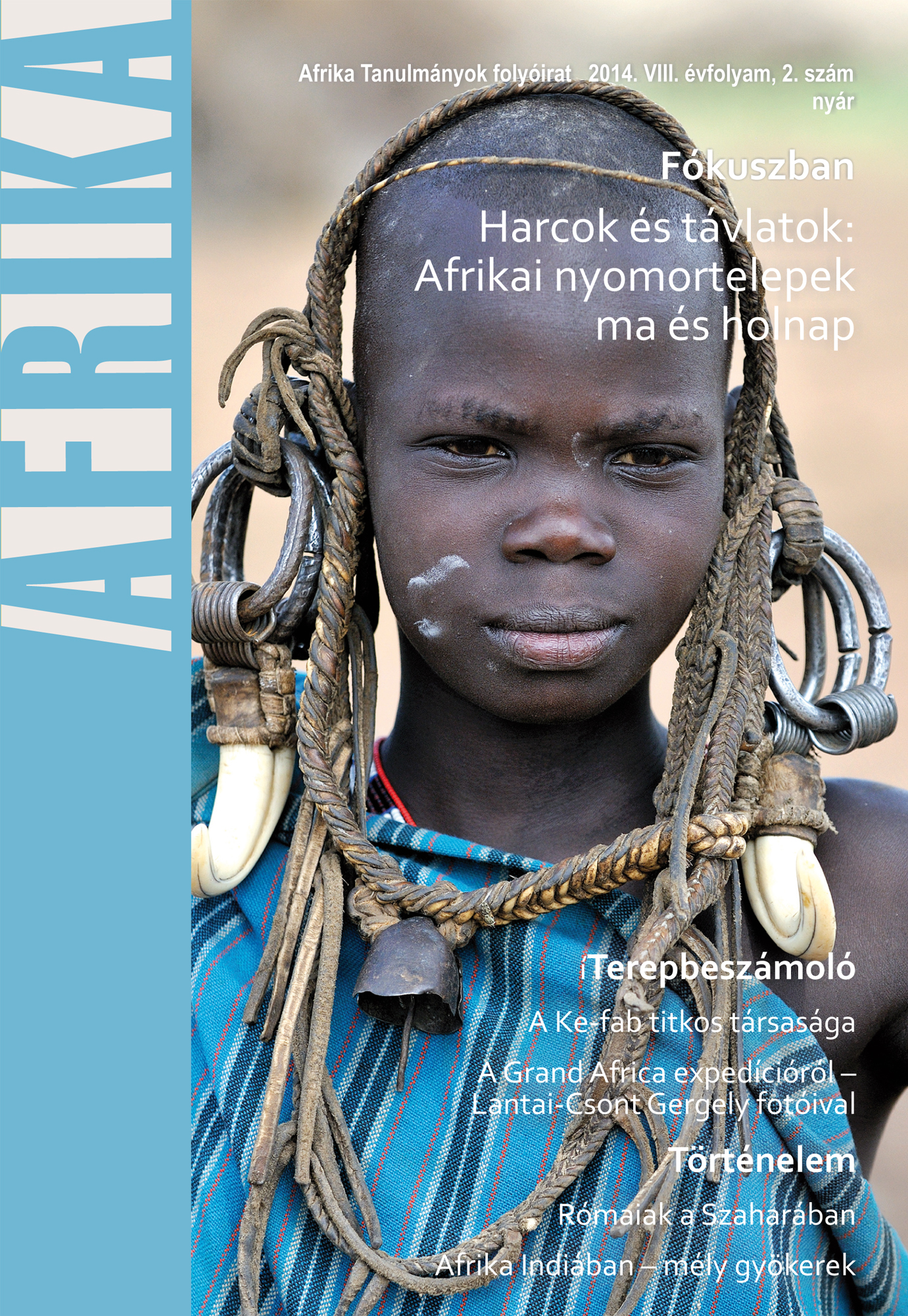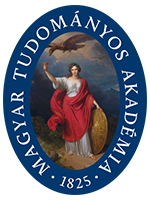Editorial
Abstract
The current issue of the Hungarian journal of African Studies (Vol. 8, No. 2, summer) is probably our most colourful collection of papers – thanks to our quality circle of authors and the increasing attention towards Africa that does not only target the past, but also numerous aspects of the present status of the continent. We have put programme director at the Hungarian Charity Service of the Order of Malta Dániel Solymári’s article in our focal section: “Fights and perspectives” tackles East African slums and informal settlements and contributes to demolishing widelyspread stereotypes. At the same time, the author also neatly formulates the argument about the fact that many Africanists consider as a challenge: “Although Africa is the continent of ‘records’, we know much less about it than about the New World or Asia.” Our section ‘Africa Today’ contains again a thorough investigation by our well-known author, Sándor Csizmadia, who is our knowledgeable guide in francophone Africa. He looks at Tunisia – in his second piece in a row (the first was published in our journal in 2011 titled “Secular dictatorship, free elections and Islamic democracy”) – and the events since 2011. His new paper bears the title “Tunisia: the constitutional consensus of “Islamist” and “secular” political powers – The most democratic constitution of the Arab world.” We can offer our readers two unique summaries of fresh field experience: Ildikó Turóczi takes us to Northern Cameroon and talks about the Ke-fab secret society; Karina Kozári shares her encounter with the Samburus of Kenya. Both articles can easily be associated with the sub-title of the first piece: that is “keeping traditions in an untraditional way”. Our history section has two interesting papers: the remarkable ancient historian of the University of Pécs Tibor Grüll’s “Romans in the Sahara” and Lénárd Timár’s “Africa in India – Deep roots”: both enjoyable pieces for all lovers of our human history. Excavations since the 1990s have revealed that the borderline ‘limes Africanus’ was not as harsh and rigid as it had been thought earlier, but that “the Roman Empire’s trade contacts beyond the limes were just as active and important as towards” South Arabia and other Southern territories. It may surprise many that India has maintained contacts with Africa as long as with European countries. Our special section on African philosophy contains the translation of Daniel Tschapda Plameu’s article on time. We know the African saying that “while the white man has the clock, the African has the time”. Beyond this, maybe the most striking information for us is that on this continent of many regions with very scarce or no rain at all, there are places where the most desirable period is the dry season not the arrival of the rainy one, ‘good’ and ‘bad’ time is relativized. We wish all of you good weather – let that be dry or rainy – so that you enjoy the new issue of Afrika Tanulmányok!
Gábor Búr
editor-in-chief
Downloads
Published
How to Cite
Issue
Section
License

This work is licensed under a Creative Commons Attribution-NonCommercial-NoDerivatives 4.0 International License.
















